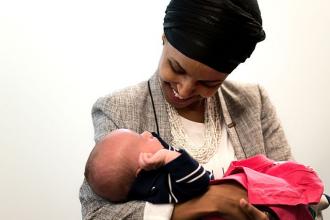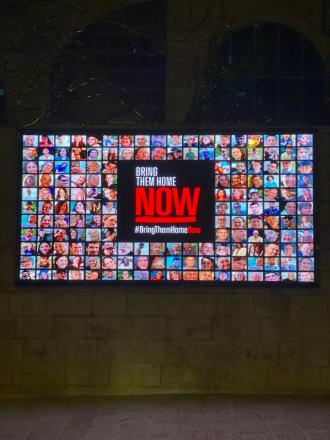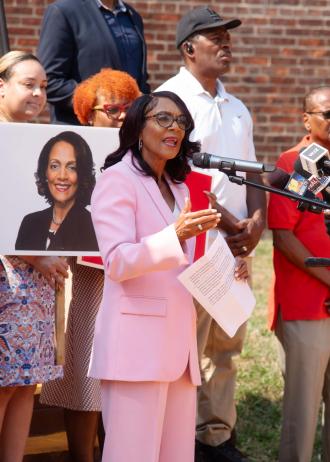Florida’s state social services agency investigated Nikolas Cruz’s home life more than a year before police say he killed 17 people at his former high school, closing the inquiry after determining that his “final level of risk is low,” despite learning that the teenager had behavioral struggles and was planning to buy a gun, according to an investigative report.
The investigation detailed several unnerving behaviors from Cruz, including that he had cut his arms on Snapchat, had a Nazi symbol and a racial epithet on his backpack and intended to purchase a gun for unknown reasons, according to a Florida Department of Children and Families (DCF) report obtained by The Washington Post. Ultimately, the investigation was closed in November 2016, just months before Cruz bought the AR-15 assault-style rifle that police say he would later use in the massacre at Marjory Stoneman Douglas High School in Parkland, Florida.
The state social services probe was the latest in a series of revelations about how Cruz’s pattern of worrisome – and sometimes violent – behavior had prompted concerns and had come to the attention of authorities in the past few years, including school officials, state social services officials and federal law enforcement authorities. Though aware of the warning signs, those same officials were unable to stop Cruz from buying a gun or to intervene before he allegedly returned to his former school on Wednesday and opened fire on several classrooms.
Across South Florida and beyond, local and federal authorities have faced intensifying questions over why they failed to act on the red flags. The FBI had drawn the most scrutiny since it acknowledged Friday that the bureau received a tip in January that Cruz might attack a school and then never investigated that warning. The Broward County Sheriff’s Office also said Friday that police had received about 20 calls for service related to Cruz in recent years.
The missed warnings have taken an ominous shape in hindsight: The FBI said in a statement Friday it received a tip from someone close to Cruz who was concerned about his “gun ownership, desire to kill people, erratic behavior, and disturbing social media posts, as well as the potential of him conducting a school shooting.” The DCF report said that more than a year earlier, state officials were told of Cruz’s intention to purchase a gun.
The DCF report said that the agency began looking into Cruz in September 2016, four days after he turned 18. The report said that Cruz was viewed as “a vulnerable adult due to mental illness,” stating that he has depression and had been taking medication in the past. This report’s findings were first made public by the South Florida Sun-Sentinel.
Officials with DCF have not publicly released the report but have petitioned a court for permission to disclose “confidential records that pertain to an investigation of alleged abuse, neglect or exploitation of a vulnerable adult.” A DCF spokeswoman has said that Cruz had no child-welfare history with the state agency and said Saturday that the state investigation in 2016 was to determine whether Cruz was safe and had access to necessary services.
“While the [Adult Protective Services] report related to this individual remains confidential pending a court order for release, we have reviewed the circumstances surrounding the 2016 case,” DCF Secretary Mike Carroll said in a statement. “Mental health services and supports were in place when this investigation closed. We look forward to Monday’s hearing, where we will ask that these records are released so the public can have access to this important information.”
The investigators who wrote the report could not be reached for comment, and one counselor mentioned in the report declined to comment when reached Saturday.
Investigators appeared to be looking into Cruz’s home situation because he was deemed a “vulnerable adult,” and they were determining whether he was being treated well and whether he was taking his medication. Investigators found no reason to think he was being mistreated and found that he had support at home from his mother.
But in the allegation section of the report, investigators wrote that Cruz and his mother, Lynda, were arguing over paperwork he needed to obtain an identification card. Cruz also was described as being depressed and having been seen on Snapchat cutting his arms.
The report said Cruz’s mother told officials that he was having issues because of a breakup with a girl who was cheating on him. Cruz’s mother also told investigators that she and the girl’s mother “told the kids they had to end the relationship because it was unhealthy for everyone,” the report states, without elaborating.
Cruz had gotten into a fight with another boy over the girl, his mother said, adding that the cutting began only after Cruz and the girl broke up.
Cruz’s mother also is quoted as saying that he did not have a gun at the time of the investigation, though he had an air gun that was taken away when he broke household rules about only firing it at targets in the backyard.
In a safety assessment, the report said the level of risk to Cruz was low because he “has services already in place” and “resides with his mother, attends school and receives counseling.” Cruz’s mother died of pneumonia in November, relatives said, while Broward County Public Schools officials say he was expelled from Douglas last year for unspecified disciplinary issues.
According to the report, Cruz’s mother said her son and their family have never had “issues with other races or issues with racism.” She also said Cruz claimed he did not know what the drawings on his backpack meant.
The investigation was closed less than two months after it began, concluding that there were “no indicators to support the allegations of inadequate supervision or medical neglect.” The report does not say who made the allegations that prompted the probe.
Attorneys representing Cruz acknowledge his guilt, but they have assailed the missed warnings that piled up over the years before the bloodshed at Douglas.
“The system that’s designed to identify folks that are posing a threat to themselves and more importantly to others, it failed,” said Gordon Weekes, the chief assistant Broward County public defender and one of the attorneys representing Cruz. “It just utterly failed. . . . With all these failures in the system that should have recognized a clear cry for help, the system did not work the way it was designed.”
Since the shooting, Parkland has mourned the dead, who included 14 students and three school staffers. The region also has seen a surge in anti-gun activism and anger, highlighted by hundreds of infuriated students, teachers and residents who gathered outside the federal courthouse in Fort Lauderdale on Saturday, chanting “enough” and “not one more.”
Defense attorneys have said that Cruz will plead guilty to the shooting if prosecutors agree not to seek the death penalty, arguing that it would not be right to execute someone who slipped through so many cracks.
Michael Satz, the state attorney for Broward County, said his office would not formally announce whether it will seek a death sentence until further along in the investigation, saying that now is a time to let families mourn. But he also said Saturday that the rampage “certainly is the type of case the death penalty was designed for.”
(c) 2018, The Washington Post · Mark Berman


















